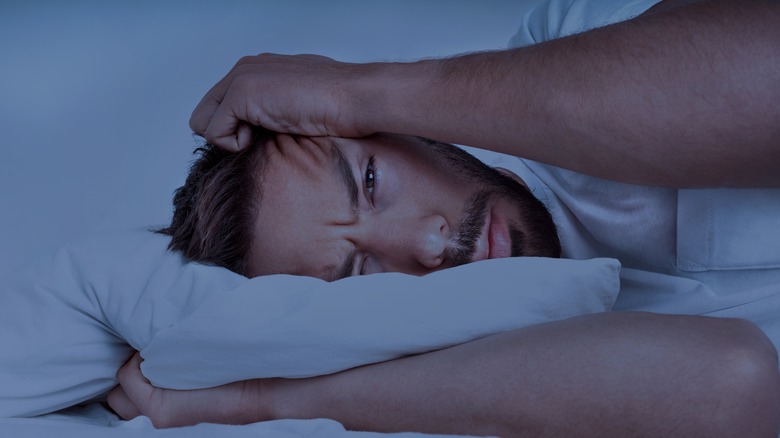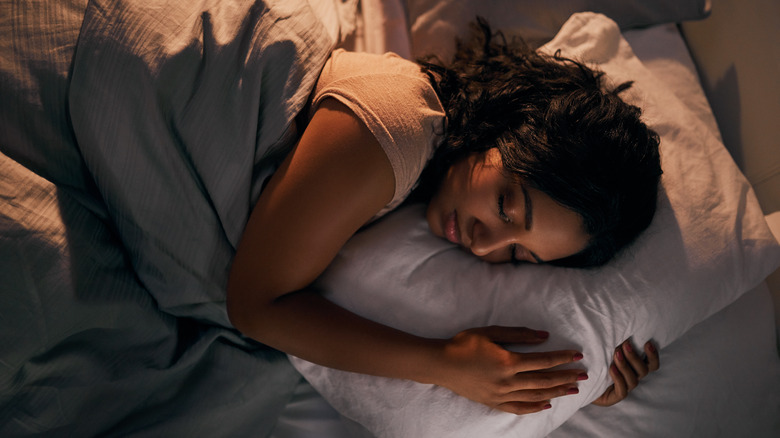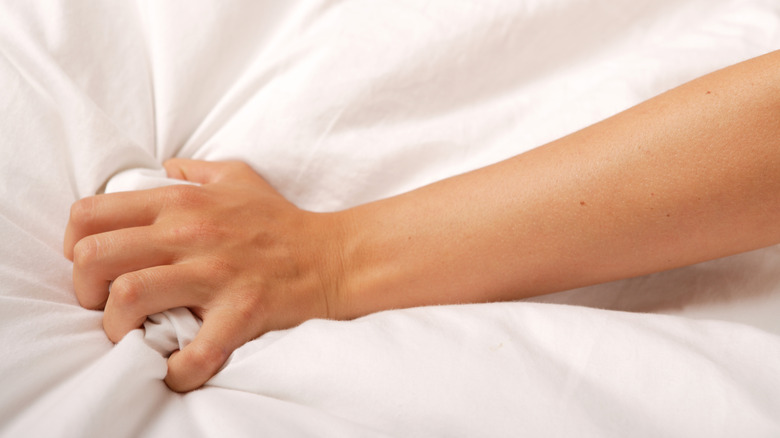When You Stop Masturbating, This Is What Happens To Your Sleep
Those who masturbate swear by its many benefits. Not only is it a chance to get to know your body more intricately but it's also a pretty empowering feeling to know that you can give yourself so much pleasure.
Turns out, there's another reason to get better at pleasuring yourself. You have your answer if you're wondering about the things you didn't realize were ruining your sleep. Masturbating and a corresponding orgasm release a cocktail of feel-good hormones in your system, some of which contribute toward quality sleep.
Prolactin is one such hormone, per chief of pulmonology and sleep medicine director at Kaiser Permanente in Honolulu, Dr. Shanon Makekau (via Everyday Health). "Levels of prolactin are higher during sex with a notable spike after orgasm, which may be responsible for the post-coital drowsiness that many people experience," the expert shared. Per a 2016 study published in the journal Endocrine, an orgasm that followed both masturbation and coitus resulted in an increase in prolactin levels in men and women. For women, there's also the added benefit of increased estrogen, Dr. Makekau explained. Both of these hormones can boost rapid-eye movement (REM) sleep.
Other hormones released during masturbation that aid sleep
Endorphins, vasopressin, oxytocin, norepinephrine, and serotonin are some other hormones involved in an orgasm that can also put you right to sleep. As explained by sexologist Rebecca Alvarez Story (via Well+Good), while endorphins act as natural painkillers and make you feel more relaxed, vasopressin and oxytocin work against the stress hormones in your system.
High levels of stress hormones, specifically cortisol, happen to be linked with insomnia. High levels of stress hormones, specifically cortisol, happen to be linked with insomnia, and the oxytocin release that happens with sexual stimulation and a corresponding orgasm are known to reduce cortisol levels.
Oxytocin is commonly called the "cuddle chemical" or "love hormone" and often accompanies physical closeness with someone. An orgasm releases oxytocin too. According to a 2017 study published in the American Journal of Physiology, involving men and women with obstructive sleep apnea (OSA), administering 40 international units (IU) of oxytocin significantly improved total sleep time and sleep quality. What about norepinephrine and serotonin? "[These] help your body get into a flow of REM sleep cycles to help you stay asleep," Story added.
How to use orgasms for better sleep
Masturbating can be like second nature for some, while for others, the entire concept can be a bit nerve-racking. If you're already enjoying climaxing with the use of just your hands (and sex toys), go ahead and see if you can turn to the activity to get better sleep. You'll just happen to reap two benefits with one bedtime pursuit.
Sex therapists often tell first-timers to take things slow, set the right ambiance, and be curious and imaginative when caressing your body. The important thing is to allow yourself to experiment in your own time with no self-judgment or specific timeline. What works for one person may not always work for someone else. Having the goal of an orgasm (whether it's to sleep better or simply enjoy a climax) can also put a damper on things, so it might be helpful to stay in the moment.
If you have a partner, engaging in intimate time with them, can release the same feel-good chemicals. In fact, having sex can affect your sleep more positively than masturbating. Either way, who knew that the two things you can do while lying in bed can complement one another this way?



